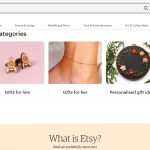If you’re looking for a way to make money online in Nigeria without needing a warehouse or physical office, selling digital products is one of the best ways to start.
You can create once and sell over and over again.
No delivery stress, no inventory management—just pure value and income. And the best part? Anyone with internet access and something useful to offer can do it.
I’ve met students, full-time workers, stay-at-home parents, and even retirees who sell digital products and earn real income.
From eBooks, online courses, templates, stock photos, music beats, to mobile apps—the digital product space is wide open.
Nigeria’s internet usage is booming, with over 122 million active internet users as of 2023
That means more people are online, learning, buying, and building. If you have knowledge, skills, or content that solves a problem or entertains people, you’re already halfway there.
In this blog post, I’ll walk you through everything you need to know about selling digital products in Nigeria—how to get started, where to sell, how to receive payment, what sells well, and what to avoid.
Let’s get into it.
What Are Digital Products?
Digital products are non-physical goods that can be sold or distributed online. These could be:
eBooks
Online courses
Music and sound effects
Canva templates
Photoshop presets
Spreadsheets
Printables
Web design themes
Mobile apps
Digital art
Video tutorials
Software and tools
Once created, you can upload them online and keep selling without shipping or handling logistics. That’s what makes them so attractive.
Why Sell Digital Products In Nigeria?
Here are a few simple reasons:
No need for capital to stock inventory. You only need your laptop or phone and internet.
You earn in naira or dollars. Many platforms let you receive payments in foreign currency.
It’s scalable. You can sell one product to 10 or 10,000 people without extra cost.
It builds passive income. You create once and keep earning without doing extra work every day.
And since the naira continues to fluctuate, earning in dollars through platforms like Gumroad, Payhip, or Selar can help you beat inflation.
What Types of Digital Products Sell Well in Nigeria?
Some of the most popular digital products Nigerians buy include:
eBooks: How-to guides, recipes, study guides, exam tips, and motivational content.
Online courses: Digital skills like graphic design, video editing, data analysis, forex, UI/UX, coding, etc.
Templates: For PowerPoint, Canva, resumes, business plans, etc.
Music beats and sound effects: Especially among music creators and content creators.
Mobile apps and tools: Productivity tools, budgeting templates, and habit trackers.
Design resources: Icons, fonts, mockups, and preset filters.
If your product solves a clear problem or helps people learn something useful, it has good potential.
Step-by-Step Guide to Selling Digital Products in Nigeria
1. Decide What You’ll Sell
Choose a product based on:
What you know well
What people are already asking for
What’s already selling (but where you can offer something better or simpler)
Check Facebook groups, Twitter trends, YouTube comments, and forums to get ideas.
2. Create Your Digital Product
You don’t need fancy tools. Most people use:
Google Docs or Canva for eBooks
Loom or Zoom + screen recorders for video courses
Figma or Photoshop for design templates
Excel or Notion for spreadsheets
Focus on creating something simple, useful, and easy to understand. Don’t try to be perfect—just solve a real problem.
3. Choose Where to Sell
You can either sell through:
Self-hosted platforms (you create your website using WordPress + WooCommerce)
Marketplaces like:
If you want something fast and beginner-friendly, start with Selar, Gumroad, or Payhip.
4. Set Up Payment Methods
In Nigeria, you have options like:
Paystack or Flutterwave: To collect naira directly from Nigerian customers.
PayPal: Not all Nigerians can receive money with PayPal, but you can use Grey.co or Geegpay.africa to create foreign accounts like USD or GBP.
Payoneer: Great for withdrawing earnings from international platforms.
Stripe (through third-party setups): You can get a working Stripe account with a US LLC (check out platforms like Doola, Firstbase, or get a friend abroad to help).
Make sure your platform connects with your chosen payment method.
5. Upload Your Product
Once you’ve created your product and set up payments, upload your files and create a simple product page.
Use clear titles, simple descriptions, and add a preview or sample. Don’t overcomplicate it—just show people what they’re buying and how it will help.
6. Start Marketing
This is where most people give up. But you don’t need to be loud or spend money on ads.
Here’s what works:
Post consistently on Twitter or Instagram.
Share helpful content on LinkedIn or Facebook groups.
Start a blog or YouTube channel to teach what you know and link to your products.
Offer a free version or lead magnet (like a free mini eBook) to collect emails.
Use MailDrip.io or MailerLite to build an email list you can market to regularly.
The more useful you are online, the more likely people will trust you and buy.
Mistakes To Avoid
Trying to be perfect: Just start. You can always improve later.
Making your product too complex: Keep it simple and actionable.
Ignoring customer feedback: Use it to improve your product and future versions.
Not promoting consistently: If you don’t show up online, nobody sees your product.
Pricing too low or too high: Check what others in your space charge. Start fair, then adjust with time.
FAQs
Do I need to register a business to sell digital products in Nigeria?
Not at first. You can start as an individual. But once you start earning consistently, it’s smart to register a business (CAC) so you can access more payment options and build trust.
Can I receive dollars from customers abroad?
Yes. Use platforms like Gumroad, Payhip, or Stripe with Payoneer, Grey, or Geegpay to receive international payments.
What’s the easiest digital product to start with?
eBooks or templates. They’re quick to make and easy to sell. You don’t need to appear on camera or have a lot of tech skills.
How do I prevent people from copying my digital product?
While you can’t stop piracy 100%, platforms like Gumroad and Payhip let you limit downloads and protect your links. Also, make your brand known—people are less likely to steal from someone with an audience.
How much can I earn?
It depends on your niche and marketing. Some Nigerians make ₦50,000/month while others earn over ₦1 million/month from a single product. Start small, grow with time.
Final Thoughts
Selling digital products in Nigeria is not a get-rich-quick thing, but it’s one of the most realistic ways to earn online—especially if you want something flexible, scalable, and independent.
You don’t need fancy gear or a team. Just pick a skill or topic you know, turn it into something useful, and put it in front of the right people.
So, what digital product are you thinking of creating and selling?





GIPHY App Key not set. Please check settings